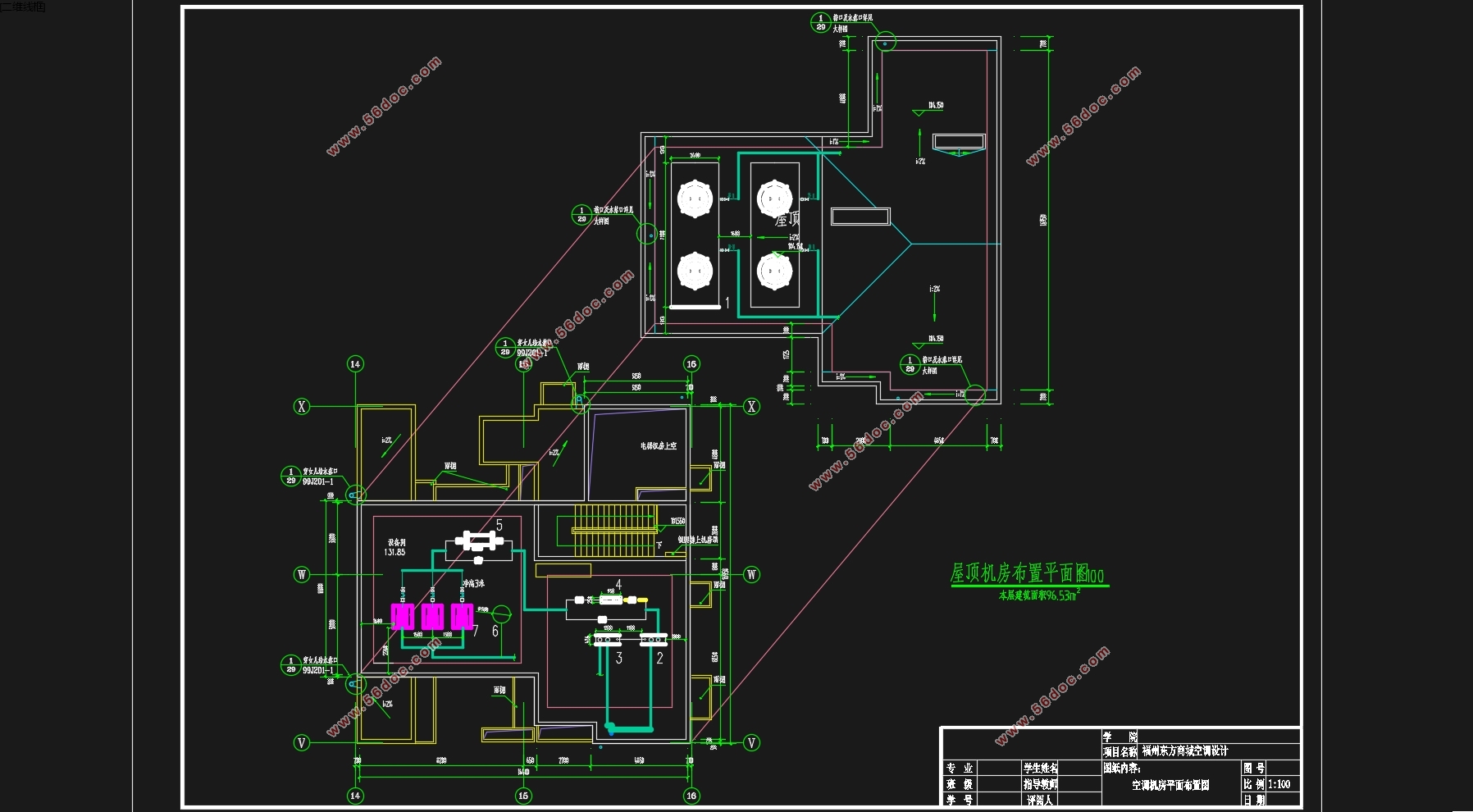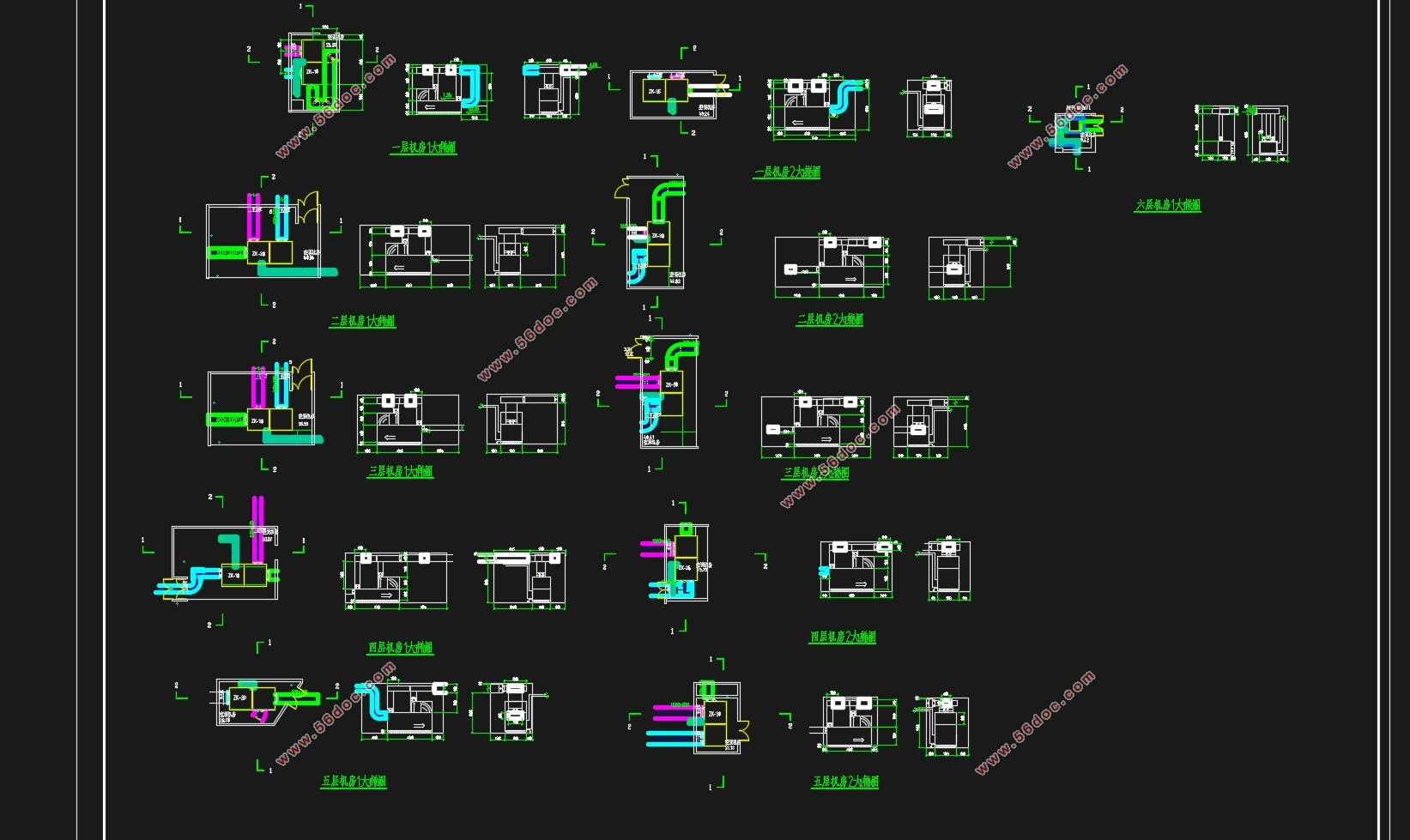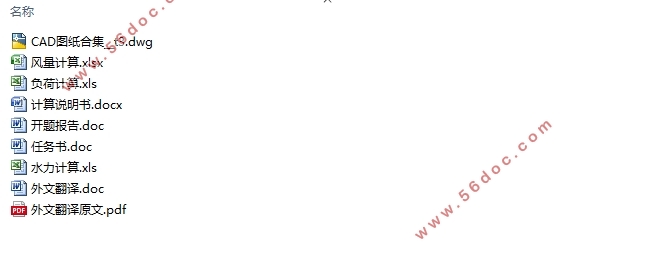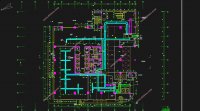福州东方商城综合性建筑空调工程设计(含CAD图)(任务书,开题报告,外文翻译,计算说明书15000字,实习报告,CAD图11张)
摘 要
本建筑位于福建省福州市市,是一个集会议、食堂、住宿为一体的综合性建筑,地上7层,包括餐厅、办公室、商城等,总高度32米,总占地面积2765平方米。本文首先用民用建筑供暖通风与空气调节设计规范中的冷负荷计算法对建筑负荷进行了计算。通过经济性和技术性比较选择了风冷机组作为冷热源。之后针对各房间的位置和功能不同,商场、餐厅大空间采用了全空气系统,房间空气品质较好,并且在过渡季节可以实现全新风运行,最大程度上利用自然界的能量,节省能源。对于办公室等一些使用较为灵活的小房间,采用风机盘管和独立新风的半集中式系统,可以实现较为灵活的控制。对于全空气系统采用一次回风的机器露点送风的方式,风机盘管系统采用独立新风的方式,通过计算确定了各房间的送风状态和送风量。针对不同的房间采用了不同的送风方式。本文对空调系统的消声减振及保温也做了一定的讨论。
关键词:空气调节 全空气系统 空气—水风机盘管系统
Abstract
The building is located in Fujian, fuzhou Province, is a Comprehensive construction。It contains 7-floor, including Restaurant, Office, Shopping mall and so on. The Overall height is 32 meters, covers an area of 2,765 square meters. This article first estimates the load , choosing chiller as cold and heat source. For every room of different functions,such as Restaurant, Shopping mall so on covering a large space chooses entire air system.it can get air of better quality and can run in the tansition seasons with all fresh air , which can make best use of natural energy and save energy. For offices and some other small rooms which use more flexibly, chose fan-coil system that can achieve a more flexible control. In the second parts ,the author first do a accurate calculation of the load and then amend the parameters of the units. For the all air system ,the air is cooled to machine dew point. For fan coil system the fresh air is forced into the room independently after being cooled. Then the author definit the state of the air by caiculateing.For adifferent room from the air supply using different methods. In this paper, air-conditioning systems, vibration and noise reduction insulation also do a certain amount of discussion. the paper used the mechanical ventilation, exhaust pipe and the exhaust pipe shared by electric exhaust valve and exhaust the state switch.
Key words: air-conditioning all air system air -water fan-coil system mechanical ventilation system
工程概况
本工程为福州东方商城空调设计。
本建筑为地上7层,建筑面积约为14000m2。主要功能:1~3层为商铺,地上4~6层为办公用房,7层为设备层。层高均为4.5米。






目录
摘 要 I
Abstract II
第一章 工程概况 1
1.1 气象资料 1
1.2 建筑资料 2
1.3人员资料 3
1.4 照明、设备资料 3
1.5 使用时间 4
第二章 空调负荷计算 4
2.1 夏季冷负荷的计算 4
2.1.1 外墙冷负荷 4
2.1.2 外窗冷负荷 6
2.1.3 人体显热冷负荷 7
2.1.4 照明冷负荷 8
2.1.5 设备显热冷负荷 8
2.1.6 办公室1各项冷负荷汇总 9
2.1.7 一层其他各个房间冷负荷汇总 9
2.1.8 其他各层各个房间冷负荷汇总 9
2.2湿负荷的计算 10
第三章 空调方案确定 12
3.1 风系统设计 12
3.1.1空调系统的划分原则 12
3.1.2方案比较 13
3.2水系统设计 15
3.2.1方案比较 15
第四章 送风量的计算 17
4.1全空气一次回风系统送风量及冷量计算与校核 17
4.2风机盘管加独立新风系统的送风量计算 18
4.3 空气处理机组的选型 19
4.4 新风机组的选型 20
4.5 气流组织的计算 20
4.5.1 全空气系统气流组织计算 20
4.5.2 风机盘管加新风系统气流组织计算 21
4.5.3喷口送风校核计算 21
第五章 冷热源的确定 24
5.1 冷热源的选择 24
第六章 风系统水力计算 25
6.1风系统设计任务与方法 25
6.2全空气系统风管水力计算 25
6.3新风管的水力计算 27
6.4回风系统的设计 29
6.4.1回风口布置方式和吸风速度 29
第七章 水系统的水力计算 31
7.1 管材的选择和连接 31
7.2 管径的确定 31
7.3 冷凝水管路的设计计算 32
7.4冷水系统立管的水力计算 33
7.5冷冻水泵的选择 34
7.5.1冷冻循环水泵的台数 34
7.5.2空调冷水泵的选型 35
7.6水系统泄水和排气设计 36
7.6.1泄水设计 36
7.6.2排气设计 36
7.7水系统附件设计计算 36
7.7.1膨胀水箱的选型 36
7.7.2除污器和水过滤器 37
7.7.3水泵的配管 37
7.7.4支吊架 38
第八章 保温、消声、减震 39
8.1消声设计 39
8.2 管道的保温 40
8.3设备减振系统 40
参考文献 42
|













